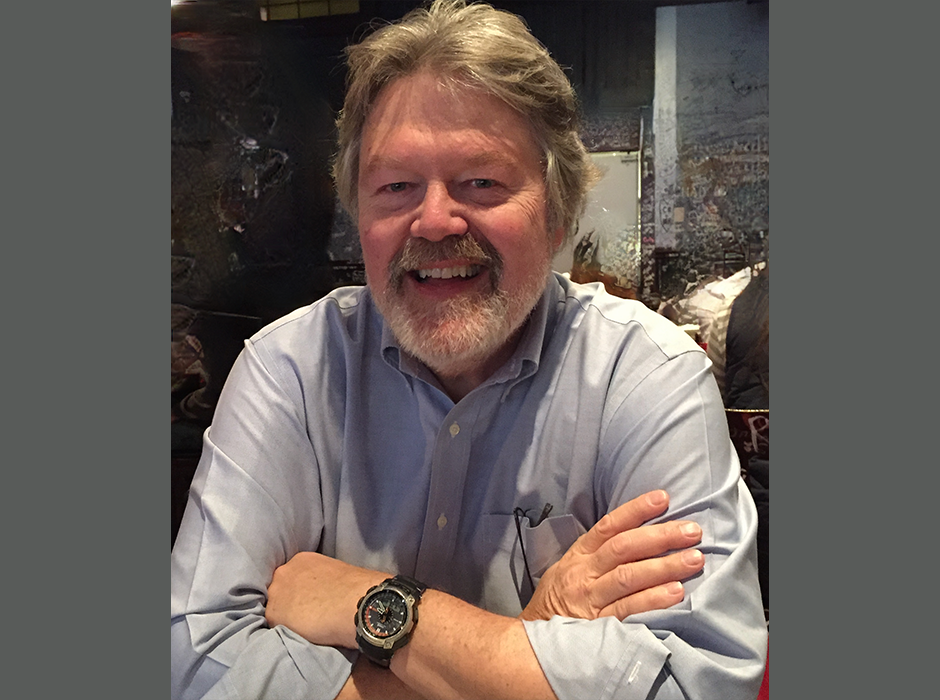
Jeff Smith has been made an Emeritus Professor in recognition of his outstanding contributions to education.
Jeff Smith has been awarded the status of Emeritus Professor ahead of his retirement from Te Kura Ākau Taitoka - College of Education this December.
A welcome addition to the Otago community, where he’s lived with wife Emeritus Professor Lisa Smith for 18 years, Emeritus Professor Smith is a Mid-Westerner and Chicagoan at heart, “that’s what seems like home”.
Emeritus Professor Smith is a quantitative psychologist by training, specialising in measurement. He explains his research as the study of assessment and the interplay between assessment and learning: how to give people feedback, understand where they are, and how to best move them along an instructional path. A parallel area of research throughout his career is the psychology of aesthetics.
His academic career began at Rutgers University in New Jersey, where he served as Chair of the Educational Psychology Department and Associate Dean of the Graduate School of Education.
While at Rutgers, he also worked for 18 years as Head of the Office of Research and Evaluation at the Metropolitan Museum of Art in New York City. He shared this work with his wife, Lisa.
“I am good at coming up with ideas and horrendous at follow through and organisation. Luckily, Lisa is world class at that,” Emeritus Professor Smith says.
Together the duo branched into studying how people learn in museums and researching the psychology of aesthetics - what were people getting out of looking at art, how did they go about understanding and interacting with it?
“This led to dozens of fascinating studies on aesthetics, including one as simple as how long people spend looking at works of art. We found, at The Art Institute of Chicago and the Metropolitan Museum of Art, the average time someone spends in front of a masterpiece is 27 seconds, and the median is 17 seconds,” says Emeritus Professor Smith.
Another large project for the duo was an ongoing collaboration with astrophysicists from NASA and the Harvard Smithsonian Center for Astrophysics. They were conducting research on people’s perceptions of space images, which are digitally enhanced to depict radiation waves outside the visual spectrum (such as x-rays and infrared radiation). He notes that, “Our group was continually amazed at how much psychologists don’t know about space and how much astrophysicists don’t know about human beings.”
Adventure called, and the pair got leaves of absence to get the wanderlust out of their system.
“We like to tell people we came to Otago under the witness protection programme.”
They both initially worked in the College of Education’s National Education Monitoring Project, under then Director Professor Terry Crooks.
“We were truly impressed by the natural beauty of New Zealand and the warmth and hospitality extended by Kiwis. An exceptionally nice place to live, and a really welcoming university.”
Over his career, Emeritus Professor Smith has made a significant contribution to the education profession, both nationally and internationally.
His roles at Otago have included serving as Dean of the College of Education for two years, which he enjoyed far more than he thought he would. He was also Associate Dean for University Research Performance, mainly coordinating performance-based research funding efforts for the University.
“This entailed working across the huge variety of departments and schools within the University. As a result I got to know some of the most fascinating people in fields totally unrelated to my own.
“There is a natural Kiwi shyness about blowing your own horn, which Americans don’t have. I was able to encourage people to really put themselves forward and encourage them to get their many accomplishments in the limelight.”
He says a highlight of his time at Otago has been working alongside some truly great people. There are too many to name, but Tony Ballantyne and Jessica Palmer were both ”supportive, terrific Pro-Vice-Chancellors” and Deputy Vice-Chancellor Richard Blaikie and Donna Hendry in the publications office were inspiring colleagues in his Associate Dean Research role. He’s also had great collaborations with his Education colleagues, including Dave Berg and David Bell, and Nicola Beaton in accounting and finance. He gives special mention to Melissa Bell, who was a fantastic academic manager during his Deanship.
Among many achievements, Emeritus Professor Smith was Founding Co-Editor of the journal Psychology of Aesthetics, Creativity, and the Arts and Editor of Educational Measurement: Issues and Practice. He received the Gustave Fechner Award for Outstanding Contributions to Empirical Aesthetics from the International Association of Empirical Aesthetics, and the Rudolph Arnheim Award for Outstanding Achievement in Psychology and the Arts, from Division 10 of the American Psychology Association.
He is much-published and more works are planned when he finishes in his role at the College. A recent book was on the ‘bad boys of art’, Scoundrels, Cads and Other Great Artists, and there are plans for another on muses and models in art. He has a project underway with former colleague, and long-time “consigliere” (confidante) David Bell on Personal Connoisseurship: Making Art Meaningful.
He is also considering a “thin, simple” book on how to explain things well, which was requested by a publisher as a follow on from his recent book on instructional feedback.
His home at Heyward Point also beckons, overlooking the ocean, surrounded by alpacas, chickens, sheep and lambs.
“Lisa is attacking retirement with the same tenacity and level of organisation that she tackles everything else. I am hoping to follow her model.”